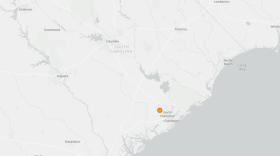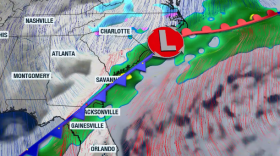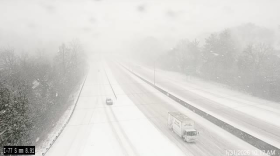-
The U.S. Geological Survey reported a magnitude 2.9 earthquake occurred near Summerville, South Carolina on Saturday evening.
-
Two cold fronts are expected to cross the Palmetto State this week. Temperatures will remain well-below-average to end the week and into the weekend. Strong winds, too! There is a warm-up on the horizon.
-
The South Carolina Department of Public Health has confirmed two additional deaths associated with Winter Storm Fern, bringing the total in the state to six.
-
Punxsutawney Phil has predicted six more weeks of winter after emerging from Gobbler’s Knob in western Pennsylvania on Monday.
-
A major winter storm bringing widespread snow and dangerous cold to South Carolina over the weekend. Most communities are expected to see 3-6 inches of snow with isolated higher amounts.
-
Winter Storm Fern has now been linked to four deaths in the state.
-
Dorchester and Georgetown Counties are making preparations ahead of Winter Storm Gianna. Residents are urged to stay safe and avoid travel this weekend.
-
Tens of thousands of people are entering their sixth day with no electricity as the Carolinas and Virginia prepare for a significant winter storm that could bring more snowfall than some parts of North Carolina have seen in years.
-
Check back here for the latest on school, university and business closures.
-
The Governor placed South Carolina under a state of emergency on Jan. 21.

Play Live Radio
Next Up:
0:00
0:00
Available On Air Stations









